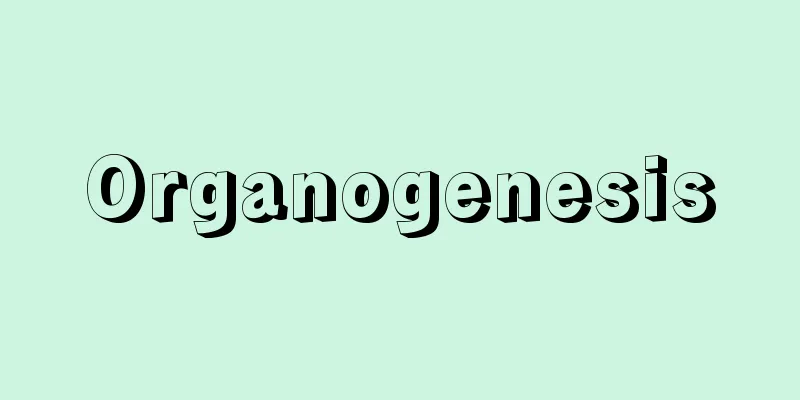Organogenesis

|
... When a substance is ingested by a pregnant woman, the time of exposure is an important factor in the occurrence of malformations, and the teratogenicity is not the same throughout the entire pregnancy. The period when the fetus is most sensitive and considered to be at risk is the period of organ formation (susceptible period) between 18-20 days and 55-60 days after implantation, with the period of greatest sensitivity occurring before 30 days. The early stages of pregnancy are also a time when care must be taken with drug intake, and once this period has passed and the fetus's organ formation is almost complete and the organs and tissues are maturing, the frequency of malformations drops sharply even if various substances are given to the fetus. ... From [Poison]...Even if fertilization is successful, if drug damage occurs during the period leading up to implantation, it may cause the death or abnormality of the fertilized egg, as well as changes in the mother's body and the implantation may be inhibited. Once implantation is successful and the egg divides repeatedly, drug damage during the organogenesis stage is likely to cause congenital abnormalities such as malformations, and fetal tissues at this stage are most susceptible to drug damage, so great care must be taken when administering drugs during pregnancy or when contaminating with chemicals. The organogenesis stage is also called the sensitive period, and depending on the time of the chemical's action, changes occur in the differentiation of the organ that reacts most strongly, which manifests as malformations in specific organs or parts of the body. ... *Some of the terminology that refers to the "organogenesis period" is listed below. Source | Heibonsha World Encyclopedia 2nd Edition | Information |
|
… ある物質が妊婦に摂取された場合の奇形発現には接触時期が問題であり,全妊娠期間を通じて同じ催奇形性が現れるものではない。胎児側の感受性が最も大きく危険視される期間は,着床後の18~20日から55~60日までの間の器官形成期(感受期)であり,とくに30日以前に感受性の最大となる時期がある。妊娠初期は薬物摂取に注意が払われるべき期間でもあり,この時期を過ぎて胎児の器官形成がほぼ終わって器官や組織が成熟する時期に入ると,いろいろの物質を与えても奇形発現頻度は急激に低下する。… 【毒】より…受精が成立しても,その後の着床までの期間に薬物による障害が起こったときは,受精卵の死亡や異常,ならびに母体側の変化とともにその着床が阻害されるおそれがある。着床が成立し卵が分割を繰り返し器官形成期に入った場合の薬物障害は,奇形発現などの先天性異常を起こしやすく,また,この時期の胎児組織は薬物の障害を最も受けやすい状態にあるので,妊娠期における薬物の適用や化学物質による汚染などには十分に注意を要する。器官形成期は感受期とも呼ばれ,化学物質の作用した時期によって,それぞれ最も強く反応を起こした器官の分化に変化を生じ,特定の器官や部位に奇形となって現れる。… ※「器官形成期」について言及している用語解説の一部を掲載しています。 出典|株式会社平凡社世界大百科事典 第2版について | 情報 |
<<: Pseudointermittent claudication
Recommend
Woolley, Sir Charles Leonard
Born: April 17, 1880, London [Died] February 20, 1...
Fortini, Franco
Born: September 10, 1917 in Florence [Died] Novemb...
Isidor
Around 1385 - 1464 Metropolitan of Moscow. Greek. ...
Aloe hawalltioides - Aloe hawalltioides
…It is found in the wild along the Mediterranean ...
Plutonic rock - Shinseigan (English spelling) plutonic rock
Among igneous rocks, this type has large crystal ...
Rothschild, NM (English spelling) RothschildNM
…He was of Jewish descent and also contributed to...
Pachmeter
... Water balance can be determined by filling a ...
Numbers - Numbers
The act of counting is an ability unique to human...
Djibouti Franc (English spelling)
…Official name = Republic of DjiboutiJumhūrīya al...
Veronica caninotesticulata; speedwell
A biennial plant of the Scrophulariaceae family. I...
Minamishima [town] - Nanto
An old town in Watarai County in the central south...
Enichiji Temple
…After residing at Todaiji Temple, he left the ca...
《Karin Bokusoku》 - Karin Bokusoku
…Other dictionaries that were newly introduced fr...
Industrial Conference - Sanbetkaigi
Abbreviation for All Japan Industrial Trade Union ...
ACTION
…It was launched in March 1961 and was officially...









